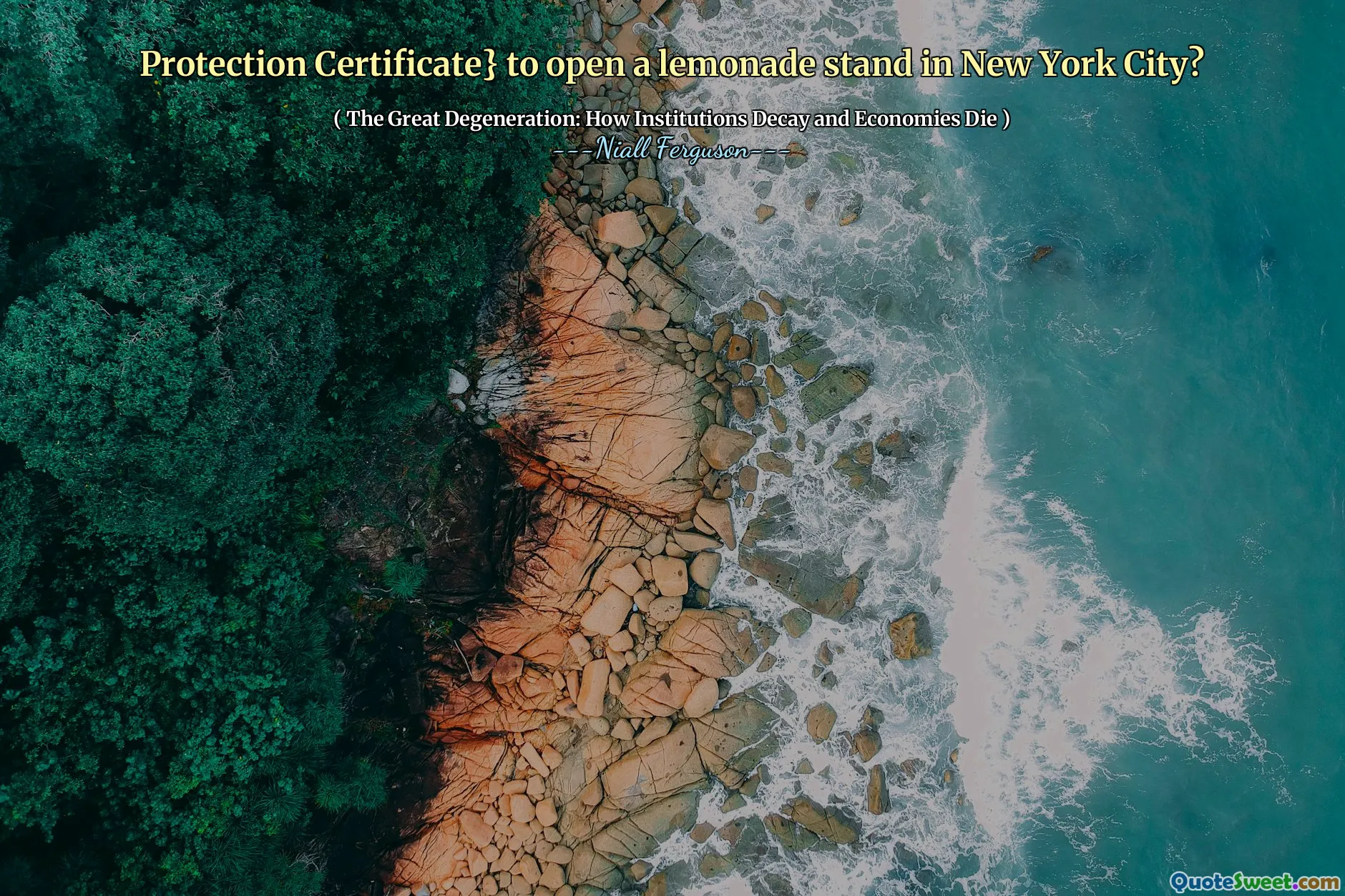
Protection Certificate} to open a lemonade stand in New York City?
In "The Great Degeneration," Niall Ferguson explores how institutions are crucial for economic success and societal stability. He argues that poorly designed regulations often impede progress. One striking example he gives is the protection certificate required to operate a lemonade stand in New York City, illustrating how excessive bureaucracy can stifle entrepreneurship and innovation even at a grassroots level. Ferguson underscores the broader implications of such regulations, suggesting that they reflect a decay in institutional quality and a move away from the principles that foster economic vitality. He warns that when institutions fail to adapt and remain overly protective, it can lead to stagnation and a decline in economic prosperity.
In "The Great Degeneration," Niall Ferguson highlights how regulations like the protection certificate for a lemonade stand in New York City illustrate bureaucracy's stifling impact on entrepreneurship. This example emphasizes the challenges faced by small businesses due to excessive governmental control.
Ferguson contends that these regulatory hurdles reflect a deterioration in institutional quality that can hinder economic growth. He argues that such constraints can ultimately undermine the innovative spirit essential for a thriving economy.











